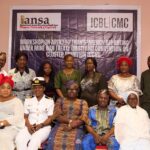ECOWAS Holds Regional Online Meeting to Review Child Rights Policy Implementation.
By Raymond Enoch.
The Economic Community of West African States (ECOWAS) has concluded a three-day regional online meeting aimed at reviewing the implementation of its Child Policy across Member States. Held from August 26 to 28, 2025, the virtual gathering brought together Directors responsible for child rights from eight ECOWAS countries, alongside representatives from key international partners and civil society organisations.
Organised by the Directorate of Humanitarian and Social Affairs under the Department of Human Development and Social Affairs, the meeting served as a crucial checkpoint on the progress made since the ECOWAS Child Policy was adopted by the Authority of Heads of State and Government in June 2019. Discussions centred on national actions taken so far and a soft baseline analysis of the Policy’s four core clusters of child rights, aiming to identify achievements, gaps, and next steps.
In opening remarks delivered on behalf of the Director of Humanitarian and Social Affairs, Dr. Sintiki Tarfa Ugbe, Programme Officer for the Social Dimension of Trafficking in Persons, Mr. Olatunde Olayemi, reaffirmed ECOWAS’s dedication to protecting children’s rights in the region. He emphasised the importance of cooperation among Member States and development partners in advancing the regional child rights agenda.
Participants engaged in technical sessions that featured presentations on the Strategic Framework to Prevent and Respond to Violence Against Children in West Africa, the ECOWAS Child Policy and its Strategic Plan, and the mandate of the Division of Human Security and Civil Society. Each Member State reported on the status of national implementation, sharing both challenges and best practices.
A key highlight of the meeting was the review of the draft Terms of Reference for a proposed ECOWAS-Partners Child Rights Committee, which aims to foster structured collaboration among stakeholders. Additionally, internal coordination mechanisms within ECOWAS institutions were examined to improve synergy and policy coherence.
International organisations and regional partners, including UNICEF, IOM, ILO, Plan International, WILDAF-AO, ISS-WA, MAEJT, and the Regional Working Group on Child Protection (GRPE), presented updates on their child protection initiatives across the region, underscoring their continued support for ECOWAS’s child rights framework.
The meeting concluded with a set of strategic recommendations. Among them were the need to enhance information-sharing mechanisms between countries, reinforce national systems for child-focused data collection and analysis, and increase budgetary allocations through child-sensitive budgeting approaches. Participants also stressed the importance of adopting a whole-of-state and whole-of-society approach, calling for the active involvement of religious institutions, non-state actors, the organised private sector, informal sector groups, and community-based organisations.
By creating a collaborative space for reflection and planning, ECOWAS has reaffirmed its commitment to safeguarding the rights and well-being of children across West Africa. The outcomes of this meeting are expected to guide future programming and policy development, ensuring that the region continues to move towards a safer, more inclusive future for every child.








